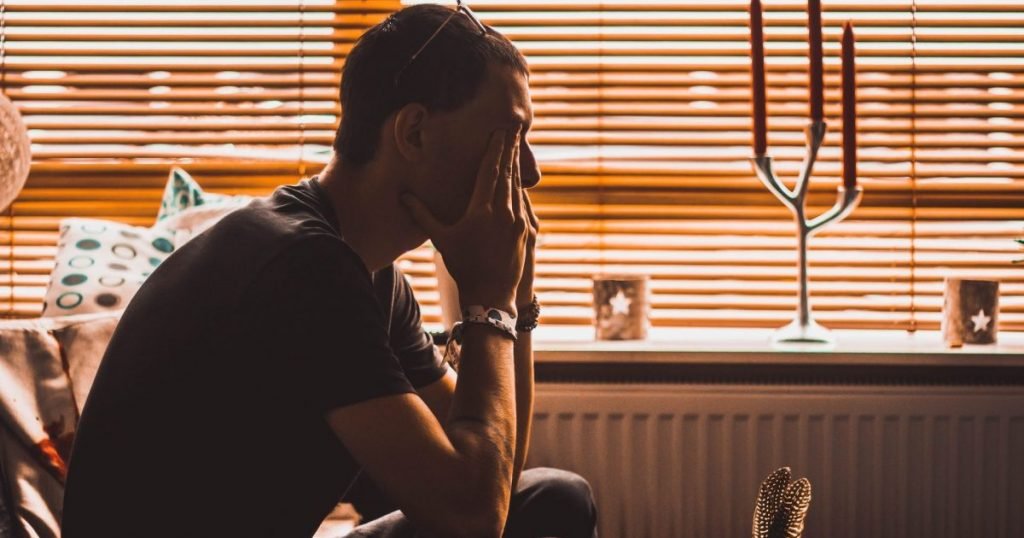“The only thing we have to fear is fear itself”
Franklin D. Roosevelt
Evolution of Fear
Evolution has made us hardwired to be averse to fear. It is a survival instinct. The innate fear that we experience when faced with a snake ensured the survival of our species. Most fears are linked to a fear of dying. This is true of phobias, such as a fear of heights, which is a survival mechanism or modern fears like losing your job. Ultimately, the loss of a job could mean ending up on the streets and starvation.
Today, however, we live in the safest, healthiest and best-educated times in human history. Access to healthcare and medicine is universal in most developed countries, and some form of healthcare is accessible in most countries globally.
As a species, we have evolved to overestimate danger. This overestimation is preventing most of us from realising our dreams and potential.
We are fortunate to be alive today, and we must not allow the things that may frighten us, to control us.
Politics of Fear
Fears have changed through history. Once where we feared witches and demons, our modern fears can include the fear of the threat of terrorism, crime and maybe government overreach. How out of proportion to a perceived danger are these fears? Perhaps they are more probable than a witch putting a toad in your morning breakfast, but are they credible?
Our society has been built to make us fearful. The news that streams into our homes exist to turn a profit. Consequently, it must keep us engaged. The most successful way to achieve that goal is to tell stories of crime, terrorism and danger because it is that which we enjoy the most. It has created completely unrealistic fears. TV is obsessed with crime, particularly violent crime.
Would it help to know that violent crime has halved in most developed countries in the last three decades? Does this fact make us feel anymore safer? Probably not, but we should be half as fearful as we were in the 90s. However, statistics show that we are more frightened of the outside, not less.
Think about the stories about kidnapped children and paedophiles that have dominated TV news, making all of us particularly terrified of child predators. However, the actual risk to a child is incredibly small. A study by NISMART put the risk at 0.000016%. Of the thousands of children that go missing every year, most are found quite quickly unharmed.
With the way we consume the modern media, it is no wonder that our fear and anxiety levels are so acute. We are told stories about how dangerous the outside world is so regularly that our minds take those fears for a fact. We don’t perceive reality for what it truly is. Although it is not entirely safe, it is safer than most of us believe it to be.
The government too manipulates these anxieties to control the population. Where once the government spoke to our hopes, it now speaks to our fears. It uses it to manage the people and pursue unpopular agendas.
“The politics of fear has brought us everything that we are afraid of, including the endless wars, the collapsing economy, and all the rest.”
Jill Stein
An excellent tip for decreasing anxiety is to avoid the news. Less than 1% of everything on the news is relevant to our daily lives. How relevant to your everyday life is a drug raid in a town you’ve never been to? The next time you watch it, remember to think critically about the stories. How many of them will impact your life tomorrow? If there are none, maybe there will be none tomorrow.
Fear and delay
“Overthinking is the art of making problems that weren’t there.”
Anonymus
How often in your life have you had a desire to do something, but thought and thought about it until you decided against your better instinct? How often do we put off doing things in our lives because we fear the consequences if it all goes wrong?
Don’t overthink; it will lead to inaction. We become paralysed by uncertainty. Unsure if the choice is the correct one or the moment is right.
The right decisions never appear so at the time, and the moment will never be the perfect moment. If there are issues with a decision, they can be resolved later.
In the 1950s, without the proper laws in place, Harry Holt adopted orphaned children from Korea. If he had waited and checked the laws that were in place, he would have been informed that this was illegal. However, after already adopting the children, Holt campaigned to change the law. By doing so, he helped to change the lives of dozens of Korean children who were orphaned as a result of the Korean War.
Waiting for ‘a purpose‘ prevents us from doing anything. You must remember to live purposefully. Sometimes in life, the best decision is to act with your full heart and leave the finer detail to be resolved later.
Who to Listen to and Who to Ignore?
As you start to live a fearless life, you will encounter haters. Their hate is usually rooted in jealousy.? They too want to do the things that you are doing but fear the consequences for themselves.
It is an accepted but true stereotype that the men who are most vehemently against homosexuality also have latent homosexual desires. They are repressed and refuse to acknowledge those feelings. As a result, they often attack the same gay men that live out their true selves.
Don’t let these people dictate your life or stop you from achieving your dreams. They only say those words in hate and to stop you from showing the bravery they secretly wish to display. Listening to these people will never lead to a happy life.
However, some offer constructive criticism. They wish to support us in our endeavours, and their feedback can be essential in developing our ideas. These people don’t want to stop us from being fearless. You must learn to take on board their constructive feedback, to improve and develop who we are.
Living a Fearless Life
In the book Be Fearless by Jean case, she outlines five principles in living a fearless life.
- Make a big bet. At the start of the 1960s, the US aimed to land a man on the moon by the end of the decade. The technology for such a challenge was yet to be invented. How long would it have taken to reach the moon if the goal set were not ambitious? Aim high in whatever you do; you just might reach your goal.
- Be a Risk Taker. Remember the trailblazer who changed the world. Those who led scientific discoveries and fought for the expansion of universal rights were all risk-takers.
- Make failure matter. Failures allow us to learn and improve. If you are not failing, then you are living life too safe. It is from failure that we can grow as a person. It is not something that should be feared. We can be thankful for the chance to see things from a new perspective. It is integral to success and making a life that matters.
“Failure is success in progress”
Albert Einstein
- Reach beyond your bubble. Make connections and network; you never know what connections could lead to a better you.
- Urgency can conquer fear. Overthinking anything will usually mean that we talk ourselves out of an idea that could be our calling. Sometimes letting your instincts take control and not allowing yourself to be talked out of it is the best thing that you can do.
Mental Wellbeing
Meditation can help fight your fears as it kills that inner voice which makes us all doubt our actions. It is the voice that tells us we are not worthy and not ready. Having a daily meditation practice will help steady your mind. It is one of the best things that you can do for your mental health.
Alongside a strong mind is a strong body. Keeping a healthy body is essential to improving confidence. Exercise regularly, it will make you feel better. It will make you feel confident and give you the energy to tackle those challenges that you are no longer running in fear of.
Bravery Challenges
Set yourself bravery challenges. Suppose you are the kind of person who doesn’t talk with strangers, try it. If you avoid eye contact when you talk to people, try it. If you are not the type of person to try new activities, like an art lesson, try it. These challenges may not work the first time, and that’s OK. What matter is that you tried it and you can learn from it.
Dealing with Failure
With risk-taking comes failure and Learning to deal with it is essential. You can despair for a few days, that’s normal. After a few days, you need to pull yourself together and start the process of learning from it. What did you do well? What could you do better next time? Why did it not work this time? What do you have to do to make it a success next time?
If you failed, you must still remember to celebrate the fact that you took the chance. That is something that most people do not do.
Final Thoughts
If you want to escape the average, you must be willing to face your fears. You must be a risk-taker. You must have the confidence of your convictions and not let the haters, who are only jealous of your courage, dictate how brightly your light shines.
What are the regrets that you will have when you are old? The truth is the things that we are likely to regret are only those things that we haven’t done, not those that we did. Don’t allow your self-doubt and inner monologue to stop you from following a life of joy.
“You are Braver than you believe, Stronger than you seem, Smarter than you think.”
Winnie The Pooh






Pingback: Feel the Fear and Do It Anyway: A Guide for Life Coaches